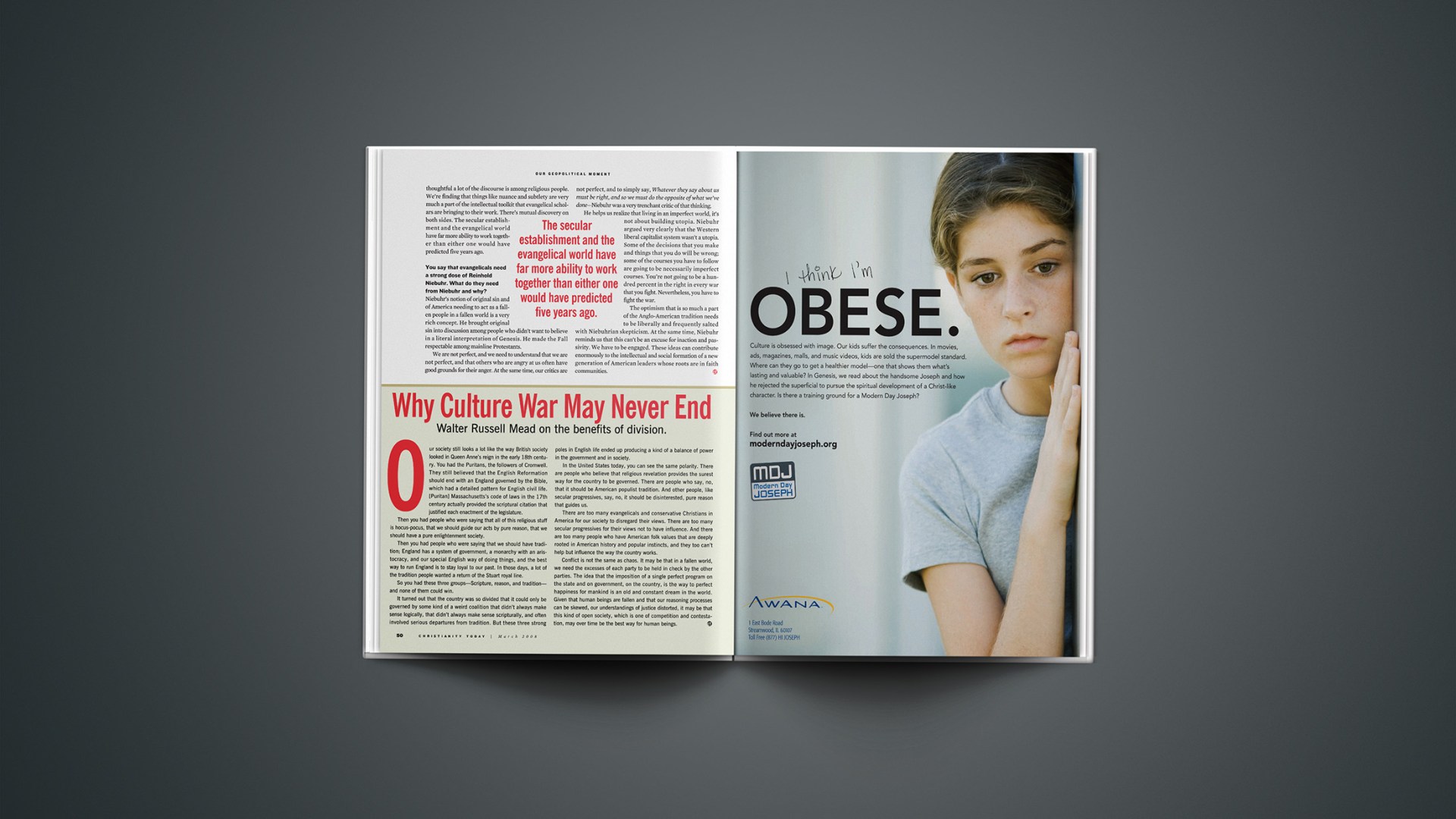Our society still looks a lot like the way British society looked in Queen Anne’s reign in the early 18th century. You had the Puritans, the followers of Cromwell. They still believed that the English Reformation should end with an England governed by the Bible, which had a detailed pattern for English civil life. [Puritan] Massachusetts’s code of laws in the 17th century actually provided the scriptural citation that justified each enactment of the legislature.
Then you had people who were saying that all of this religious stuff is hocus-pocus, that we should guide our acts by pure reason, that we should have a pure enlightenment society.
Then you had people who were saying that we should have tradition; England has a system of government, a monarchy with an aristocracy, and our special English way of doing things, and the best way to run England is to stay loyal to our past. In those days, a lot of the tradition people wanted a return of the Stuart royal line.
So you had these three groups—Scripture, reason, and tradition—and none of them could win.
It turned out that the country was so divided that it could only be governed by some kind of a weird coalition that didn’t always make sense logically, that didn’t always make sense scripturally, and often involved serious departures from tradition. But these three strong poles in English life ended up producing a kind of a balance of power in the government and in society.
In the United States today, you can see the same polarity. There are people who believe that religious revelation provides the surest way for the country to be governed. There are people who say, no, that it should be American populist tradition. And other people, like secular progressives, say, no, it should be disinterested, pure reason that guides us.
There are too many evangelicals and conservative Christians in America for our society to disregard their views. There are too many secular progressives for their views not to have influence. And there are too many people who have American folk values that are deeply rooted in American history and popular instincts, and they too can’t help but influence the way the country works.
Conflict is not the same as chaos. It may be that in a fallen world, we need the excesses of each party to be held in check by the other parties. The idea that the imposition of a single perfect program on the state and on government, on the country, is the way to perfect happiness for mankind is an old and constant dream in the world. Given that human beings are fallen and that our reasoning processes can be skewed, our understandings of justice distorted, it may be that this kind of open society, which is one of competition and contestation, may over time be the best way for human beings.
Copyright © 2008 Christianity Today. Click for reprint information.
Related Elsewhere:
This article accompanies an interview with Walter Russell Mead.
God and Gold: Britain, America, and the Making of the Modern World is available from Amazon.com and other retailers.
Foreign Affairs published Mead’s 2006 article about evangelicals and foreign affairs.










